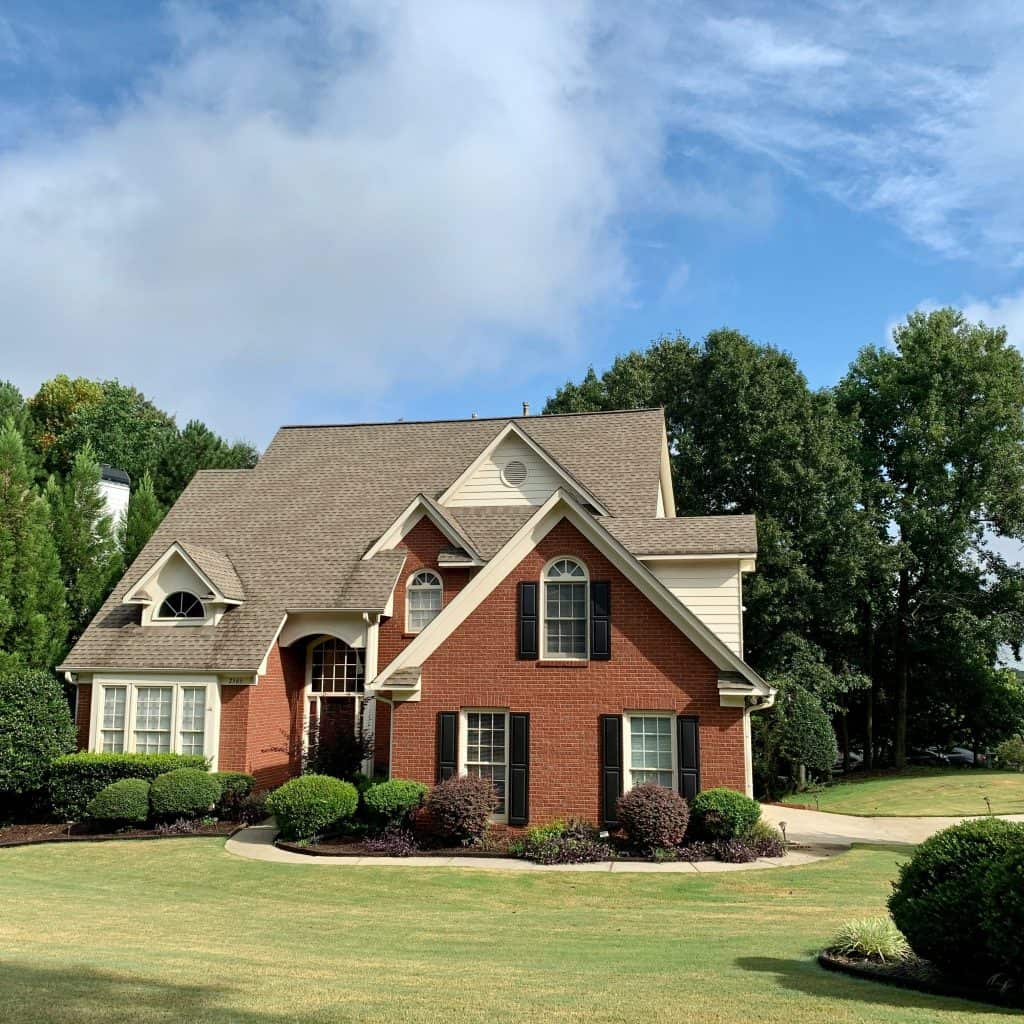Partition proceedings can be both legally and emotionally challenging, particularly when family members or business partners cannot agree on how to manage shared real estate. In North Carolina, the law shows a clear preference for partition in kind over partition by sale when the circumstances allow. Let’s explore why North Carolina favors partition in kind, how it works, its benefits, and when it’s the best option for co-owners facing a property dispute.
Partition Proceedings in North Carolina
Partition proceedings are the legal remedy for resolving disputes among co-owners of real estate when an agreement cannot be reached. In North Carolina, any co-owner—regardless of their percentage of ownership—has the right to file for a partition. This action is typically brought before the Clerk of Superior Court in the county where the property is located, ensuring that the proceedings are managed by a court familiar with local issues and regulations.
There are two primary types of partition proceedings:
- Partition in Kind: The property is physically divided into separate parcels. Each co-owner receives a distinct portion of the land.
- Partition by Sale: When physical division is impractical or would result in a significant loss of value, the entire property is sold and the proceeds are divided among the owners according to their ownership shares.
North Carolina’s legal framework encourages partition in kind if it can be done fairly and without adversely affecting the overall property value. This approach is particularly important in cases where the land holds historical or sentimental value, or when the property can be divided without causing undue hardship to any party involved.
Understanding Partitions in Kind
What It Means to Partition in Kind
Partition in kind is a process where a single piece of real estate is physically divided into two or more separate parcels. This method allows each co-owner to continue owning a specific portion of the property rather than receiving a share of cash from a sale. The process typically begins when one co-owner files a “Petition for Partition,” naming all other owners and specifying the request for a partition in kind.
The Legal Process
- Filing and Notice: The partition process starts with the filing of the petition in the appropriate county court. All known co-owners must be formally notified, ensuring that everyone with a legal interest in the property is aware of the proceeding.
- Initial Hearings: Following notification, the Clerk of Superior Court holds one or more hearings. During these sessions, evidence is presented—such as property surveys, appraisals, and personal testimonies—to determine whether the property can be fairly divided.
- Role of Commissioners: If the court determines that a partition in kind is feasible, it may appoint commissioners or referees who are knowledgeable about local land division practices. Their job is to create a plan that divides the property into parcels of approximately equal value.
Feasibility Criteria
For partition in kind to be a viable option, several factors must align:
- Size and Configuration: The property should be large enough or structured in a way that permits a clean division. Large, undeveloped tracts or properties with natural boundaries (such as rivers or distinct topographical features) are ideal candidates.
- Valuation: The division must ensure that each parcel retains a fair market value. A reliable appraisal process is crucial to confirm that splitting the land will not result in significant depreciation.
- Clear Title and Boundaries: Well-documented titles and clearly defined boundaries are essential. Uncertainties in these areas can complicate the division process and may push the court toward a partition by sale.
Advantages of Partition in Kind
Preserving Ownership and Legacy
One of the primary advantages of partition in kind is that it allows each co-owner to retain direct ownership of a portion of the property. This is especially important in cases involving family land or historic estates, where the emotional and sentimental value of the property is as significant as its financial worth. Instead of being forced into a sale that might strip the property of its legacy, co-owners can maintain a tangible connection to a piece of their heritage.
Avoiding Forced Sale Challenges
A forced sale, though sometimes necessary, carries inherent risks. Selling the property—especially at auction—can lead to a lower sale price, which may not reflect the true market value. Furthermore, the sale process can strip away the control co-owners have over how the property is used in the future. Partition in kind, by contrast, allows co-owners to continue enjoying or managing a part of the property, which may be preferable if the land has long-term personal or business significance.
Financial and Emotional Considerations
Partition in kind can be a less disruptive solution than partition by sale. While both processes require professional appraisals, legal work, and possibly additional surveying costs, a partition in kind often involves fewer complications related to market fluctuations or the stress of a public sale. This can result in cost savings and reduced emotional strain, particularly in disputes where family dynamics are already fragile.
Preserving Community and Local Value
Maintaining the physical integrity of a property can also benefit the broader community. Many properties in North Carolina have historical, agricultural, or aesthetic significance. By keeping the land intact and divided among its original co-owners, partition in kind helps preserve the character and value of neighborhoods and rural areas, contributing to a sense of continuity and local pride.

When Partition in Kind Is the Preferred Option
Ideal Property Characteristics
Partition in kind works best when the physical attributes of the property allow for a clean division:
- Spacious Tracts: Large parcels of land are generally easier to split into smaller sections without compromising their market value.
- Natural Divisions: Properties with distinct natural boundaries—such as wooded areas, streams, or hilly terrain—can often be divided in a way that makes sense geographically and legally.
- Undeveloped Land: When the property is largely undeveloped, there’s usually more flexibility in how the land can be parceled out, making a physical division more practical.
Legal and Practical Considerations
North Carolina courts rely on a combination of statutory guidelines and practical judgment when deciding between partition in kind and partition by sale. Several factors come into play:
- Fair Market Value: The court must be convinced that dividing the property will result in parcels of roughly equivalent value. This often involves detailed appraisals and comparisons to similar properties in the area.
- Maintenance of Property Integrity: If a physical division can be achieved without damaging the overall utility or aesthetic value of the property, courts are more inclined to order partition in kind.
- Minimizing Disputes: When co-owners are emotionally attached to the land, a partition in kind can help maintain a sense of ownership and reduce long-term conflict. This method is particularly appealing when family relationships or longstanding business partnerships are at stake.
Challenges and Considerations with Partition in Kind
Potential Drawbacks
Despite its many advantages, partition in kind is not without challenges. One significant concern is that physically dividing a property can sometimes lead to a reduction in overall market value. When land is subdivided into smaller lots, each parcel might be less attractive to buyers, especially if the parcels do not conform to typical market standards.
Other potential drawbacks include:
- Increased Surveying and Legal Costs: The process requires detailed surveys and potentially multiple appraisals to ensure each parcel is fair. These additional costs can add up, particularly if there are disputes over the exact boundaries.
- Boundary Disputes: Even with professional help, disagreements about where one parcel ends and another begins can arise, potentially leading to further legal complications.
- Maintenance of Infrastructure: In cases where the property includes shared infrastructure, such as roads or utilities, a physical division may complicate ongoing maintenance and usage.
When Partition by Sale Might Be Necessary
There are situations where partition in kind simply isn’t practical. For example, highly developed properties with buildings, extensive improvements, or intricate title issues might be better served by a partition by sale. In these instances, the potential for conflict or diminished property value might outweigh the benefits of a physical division. The court’s primary responsibility is to ensure fairness, and if partition in kind would result in significant disadvantages for one or more co-owners, a sale might be the more equitable solution.
Mitigating Risks
To address these challenges, it is crucial for co-owners to take proactive steps:
- Thorough Documentation: Keeping detailed records of all property improvements, expenses, and communications can help support a fair division.
- Professional Appraisals and Surveys: Engaging qualified professionals to assess the property’s value and create precise surveys is key to minimizing disputes.
- Clear Communication: When possible, open and honest communication among co-owners can lead to mutually agreeable solutions, potentially avoiding the need for a contentious court process.

Strategic Considerations for Co-Owners
Preparation and Evidence Gathering
Preparation is essential for a smooth partition in kind proceeding. Co-owners should:
- Maintain comprehensive records of property-related expenses, improvements, and any historical data that might impact the appraisal.
- Obtain multiple professional appraisals to ensure that the proposed division is both fair and reflective of current market conditions.
- Commission detailed property surveys that clearly outline existing boundaries and any natural features that could serve as dividing lines.
Negotiation and Mediation
Often, the best outcomes are reached before the courtroom doors open. Co-owners are encouraged to explore negotiation and mediation as alternatives to a full partition proceeding. Mediation offers a less adversarial environment where each party can voice their concerns and work collaboratively toward a solution. This approach not only preserves personal relationships but also reduces legal expenses and the time spent in court.
The Role of Legal Counsel
Navigating the complexities of partition proceedings without proper legal guidance can be daunting. An experienced North Carolina attorney will:
- Ensure that all procedural requirements are met, from the initial filing to the final division.
- Help interpret appraisal reports and property surveys to argue for a fair partition.
- Offer strategic advice on whether partition in kind or partition by sale is the better option given the unique circumstances of the case.
Legal counsel plays a crucial role in safeguarding each co-owner’s interests while striving for a solution that minimizes financial loss and emotional strain. With a knowledgeable attorney by your side, you can better navigate the complexities of North Carolina partition law and work toward a resolution that honors both the legal and personal dimensions of your property dispute.
Contact Us If You Need Assistance
Partition in kind is often the preferred option in North Carolina because it offers a way to maintain family legacies, preserve property value, and reduce the emotional toll associated with forced sales. By allowing co-owners to retain direct ownership of a specific portion of the property, partition in kind respects both the tangible and intangible aspects of shared real estate.
If you are facing a partition dispute or have questions about the best way to protect your interests, consulting with a knowledgeable North Carolina attorney can provide the clarity and strategic direction you need. Whether you are dealing with inherited property or a shared investment that has become contentious, partition in kind might offer the most balanced solution—allowing each owner to retain a piece of the legacy while ensuring that the property’s value remains intact.
Ultimately, the decision between partition in kind and partition by sale rests on a thorough evaluation of the property’s characteristics, the financial implications, and the emotional ties involved. In many cases, partition in kind is not only legally viable but also the most practical way to honor the past while safeguarding the future.


